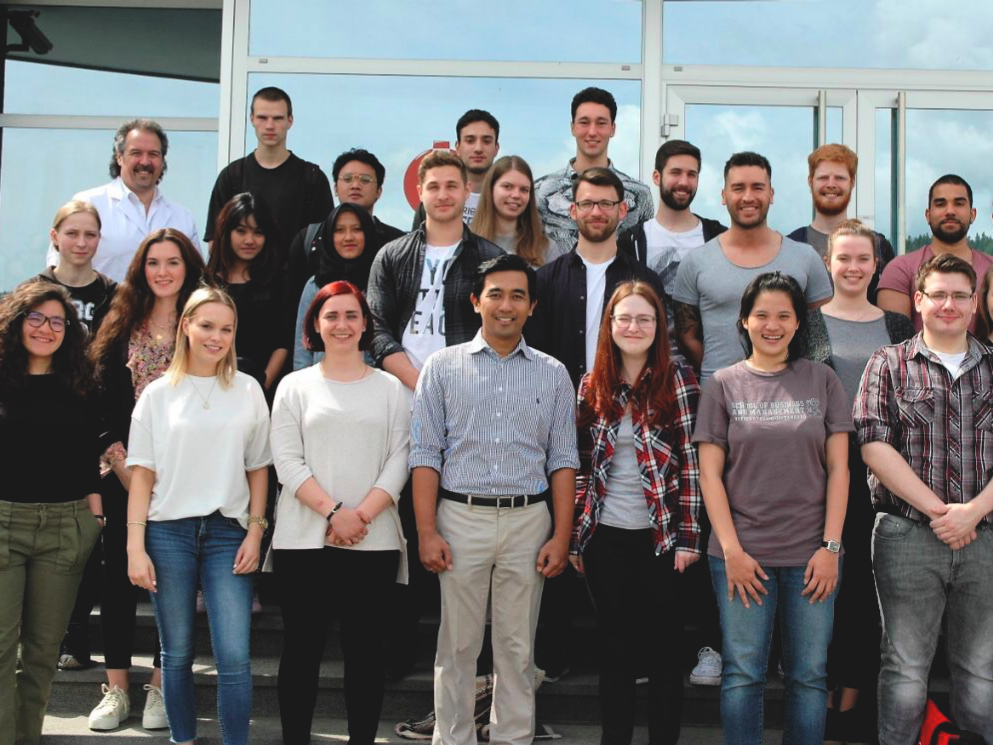Fascinating, interesting, and a completely new experience become the story of lecturer Dr. Yudo Anggoro during his visit to ESB Business School Reutlingen, Germany (March-May). This visit is part of an excursion on Cross-Cultural and Conflict Management course from SBM ITB. He is teaching in the three degree programs BSc International Operations and Logistics Management, BSc International Business and BSc Production Management. His lectures deal with intercultural management, international organization and human resource and organization behavior. Fascinating, interesting, and a completely new experience become the story of lecturer Dr. Yudo Anggoro during his visit to ESB Business School Reutlingen, Germany (March-May). This visit is part of an excursion on Cross-Cultural and Conflict Management course from SBM ITB. He is teaching in the three degree programs BSc International Operations and Logistics Management, BSc International Business and BSc Production Management. His lectures deal with intercultural management, international organization and human resource and organization behavior.
“The international atmosphere at ESB and the support he has received from the Dean’s Office and colleagues helped me a lot when starting in Reutlingen,” said Yudo.
During his lecturing, he has noticed distinct differences between German and Indonesian students: The study trip of the Indonesian students to ESB Business School had many benefits, as they learned a lot about German culture and work ethics, e.g. about the efficiency of the Germans in using their time, the direct communication in Germany and how regulations were strictly implemented in the society in terms of transportation, education, and small-medium scale industries. On the other hand, the German students learned about the Indonesian culture during class activities and interaction among them. They learned that in terms of decision making, Indonesian people prefer to have a consensus building since the society values collectivism more than individualism.
“This practice of sharing among students who have different backgrounds is good to understand each other’s cultural challenges. The interaction between Indonesian students and IOLM students went well, as the IOLM students are so nice and they happily introduced the German culture to the Indonesian students.”
As part of the international guest lecturer program, ESB Business School regularly welcomes guest lecturers from abroad. ESB and SBM ITB will intensify their relations in the future by offering a double degree program.
“The international atmosphere at ESB and the support he has received from the Dean’s Office and colleagues helped me a lot when starting in Reutlingen,” said Yudo.
During his lecturing, he has noticed distinct differences between German and Indonesian students: The study trip of the Indonesian students to ESB Business School had many benefits, as they learned a lot about German culture and work ethics, e.g. about the efficiency of the Germans in using their time, the direct communication in Germany and how regulations were strictly implemented in the society in terms of transportation, education, and small-medium scale industries. On the other hand, the German students learned about the Indonesian culture during class activities and interaction among them. They learned that in terms of decision making, Indonesian people prefer to have a consensus building since the society values collectivism more than individualism.
“This practice of sharing among students who have different backgrounds is good to understand each other’s cultural challenges. The interaction between Indonesian students and IOLM students went well, as the IOLM students are so nice and they happily introduced the German culture to the Indonesian students.”
As part of the international guest lecturer program, ESB Business School regularly welcomes guest lecturers from abroad. ESB and SBM ITB will intensify their relations in the future by offering a double degree program.




